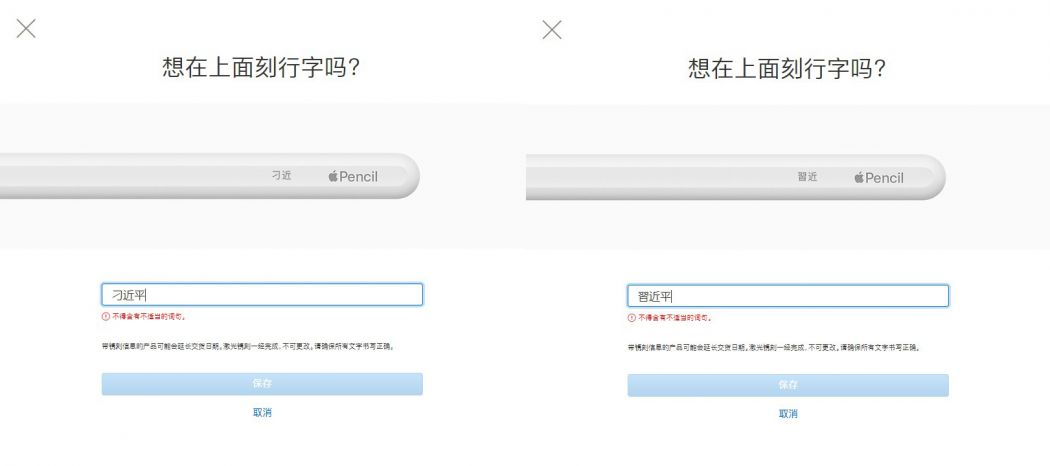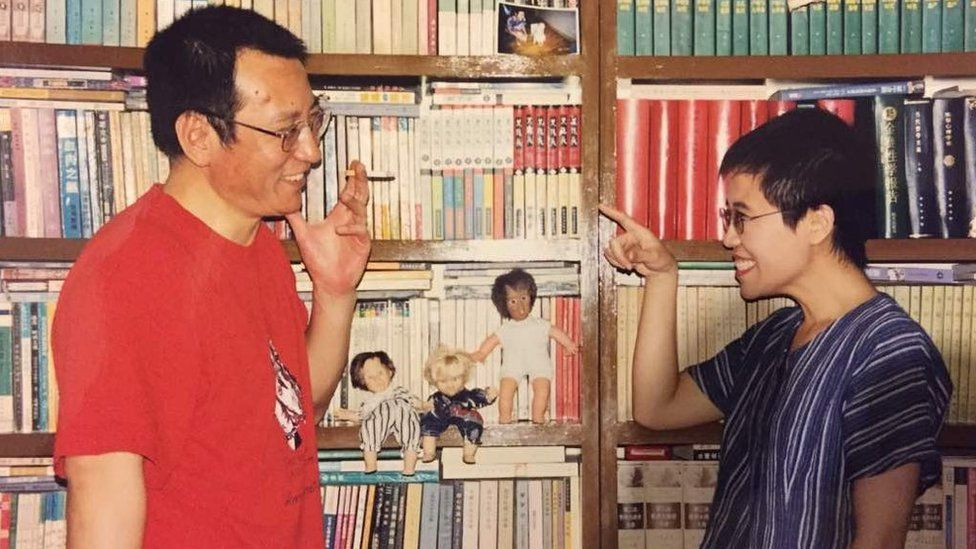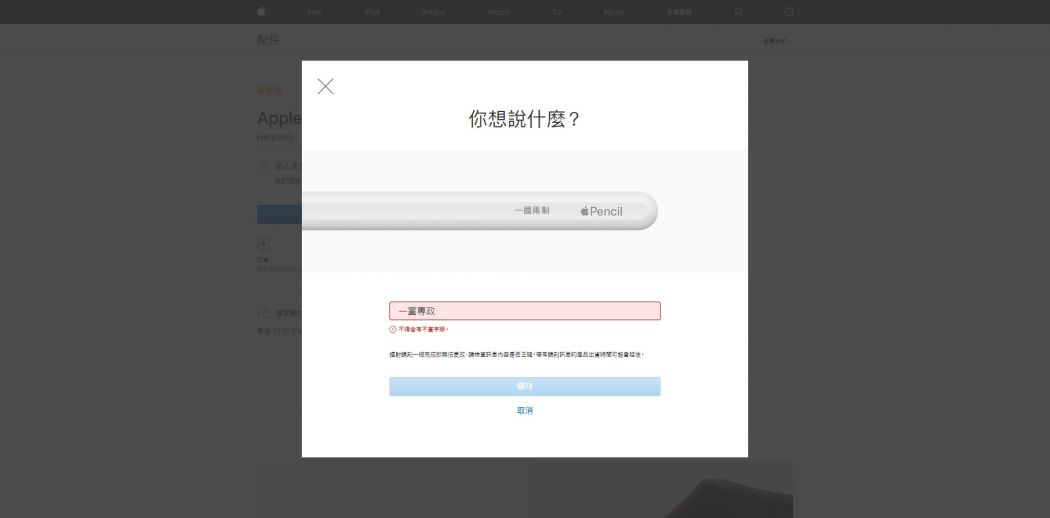The names of some Chinese state leaders and activists have been deemed “inappropriate words” and censored from the latest versions of the iPad, iPod Touch and Apple Pencil’s engraving tool, HKFP has found.
When customers go to Apple’s website to purchase one of the three gadgets, they are invited to suggest a free engraving. However, certain names typed in Chinese characters are banned from the website’s Chinese-language Hong Kong and mainland China stores.

For instance, when “Xi Jinping” is typed in Chinese characters, a warning is displayed saying: “Inappropriate words are not allowed.” Customers are unable to save the engraving or proceed.
Tests by HKFP showed that the issue is location and language-specific, as “Xi Jinping” is still permissible in English when entered into the English-language Hong Kong website.

If “Xi Jinping” in Cyrillic was inputted – on either the Chinese or English-language Hong Kong stores – the website states: “These characters cannot be engraved” instead. However, the mainland China store accepts the name in Cyrillic.

“Xi Dada,” a common nickname for Xi, is banned in traditional Chinese characters using either the Chinese-language Hong Kong or China store, but it was permitted in simplified Chinese.
State leaders
The names of other current and former Chinese state leaders in Chinese characters are not accepted on the Chinese-language local and mainland China stores. They include Li Keqiang, Liu He, Deng Xiaoping, Mao Zedong, and Hu Jintao.
But names of many other current and former Politburo members are allowed, such as Yang Jiechi and Wen Jiabao.
Dissidents
“Liu Xia,” a poet and the wife of late Nobel Peace Prize laureate Liu Xiaobo, is censored, but “Liu Xiaobo” is accepted.

“Guo Wengui,” a Chinese billionaire in self-imposed exile who often attacks top state leaders, and “Falun Gong” are not allowed. But, if customers try to engrave “Guo Wengui” in traditional Chinese characters on a product, it will be accepted.

On the mainland China store, the full form of “Taiwan independence” – four characters 台灣獨立 – is banned in both traditional and simplified Chinese characters. But the shorthand version of “Taiwan independence” – two characters 台獨 – is allowed in both forms of the language.

“Hong Kong independence” is allowed in all forms on the store, but the phrase “one-party dictatorship” is banned on the Chinese-language local site.

Profanities banned
The word “fuck” and its Chinese equivalent, such as 操 and 屌, are banned. As a result, words containing the former Chinese character are banned too, such as the name of ancient Chinese warlord “Cao Cao” (曹操) and the word “Gymnastics” (體操).

Another Chinese character – 幹 – meaning “fuck” was allowed, however. But if customers use the character to create profanities, the word is banned. Other profanities such as “shit” and “piss” were also banned.
Wong Ho-wa, an IT sector member within the chief executive election committee, told HKFP that the results showed that censorship was being carried out, but “it seems broken.”
“I suspect it was done by artificial intelligence,” he said. “I believe the original intention was to prevent words with negative sentiment or obscene words from being engraved, but Apple did not realise that some politically sensitive words – which are not negative – were not allowed as well.”
Wong suggested that it was unlikely the banned keywords were manually inputted as a list: “Otherwise, we’re unable to explain why Taiwan independence in the short form was allowed, but Taiwan independence in the full form was not allowed,” he said.
HKFP has reached out to Apple for comment.
